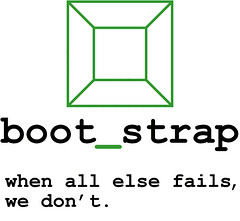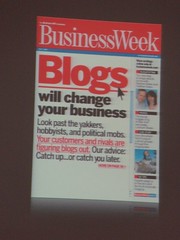Merchant cash advances are a great option for financing when a business cannot get a traditional business loan or does not have the time to wait for a loan to close. Unfortunately there are a few providers that charge additional fees, dramatically increasing the cost of the financing or have restrictions that do not fit a particular business.
When seeking a merchant cash advance make sure you find the right financing institution to fit your business' needs.
- Make it a priority to seek a merchant cash advance that requires no closing costs.
- Avoid initial, up-front fees including application fees, credit report fees and any other fees. Negotiate or seek a merchant cash advance provider that can wave initial fees.
- You may be asked to provide collateral to obtain a merchant cash advance. If your merchant cash provider requires it then the rate should be dramatically lower because it is now secured financing.
- Some merchant cash advance providers require that the business provide financial statements. Most require them for larger funding amount ($50,000 or more)
- Avoid any minimum payment requirements in the MCA contract. Some contracts require that a minimum amount be collected. The beauty of the MCA is that payback is tied directly to the business' cash flow. So, when the business is doing well, it pays back faster and just the opposite when its slower.
- Find the right collection method for your business. Most MCA providers have the business change their processing over to a credit card processing company that splits the credit card batches. If you can't change credit card processors, some may offer a trust account (also known as a lock box) collection method, where all credit card proceeds are deposited into a separate checking account then the business receives its proceeds via ACH. Some MCA providers may also offer a fixed payment collection where they collect a set amount based on the average credit card sales a business does. For example a business does $100,000 a month in credit card processing and enters into a contract where 10% of the credit card sales are collected, the MCA provider may collect $2,500 per week via ACH to equal 10% of the $100,000 it would have collected by splitting the credit card batches.
- Some MCA providers require that you've been in business for at least 24 months. If that's not the case, you'll have seek a company that have a lower requirement. Generally the minimum amount is 12 months, unless you're operating a well known franchise, then the minimum is around six months.
- Know your credit score before you start shopping around. If your business has a lower score, look for providers that fund contracts in your score range. Generally the minimum acceptable score is 550, but some have minimums of 650 or even higher.
- Most important is to find a MCA provider that has been around for at least two years and is financially sound. Many small MCA providers come and go due to lack of capitalization. You want to make sure you find one that will be a true partner in your business. Most business owner renew there cash advances even before the first contract is paid in full. It should be a relatively painless process to get additional funding in 48 to 72 hours the second time around when your balance is paid down (generally the business has to have paid 70% of the balance before being eligible for more funding.)
- Last thing is to research the financing company by checking their Better Business Bureau rating, see if they have a finance lenders license (this is not required, but its nice to know if they are being regulated) and check out discussion boards to see other clients reviews.
American Finance Solutions does not charge any type of fees in association with its contracts, does not require security in any collateral, offers all three collection methods, requires business be operating for 12 months usually (six months for a franchise), minimum FICO score requirement of 550 and has been in operation for three years and is a licensed California lender.
 Image by cosmic aether via Flickr
Image by cosmic aether via Flickr
![Reblog this post [with Zemanta]](http://img.zemanta.com/reblog_e.png?x-id=a0b46463-6b2b-4624-b032-f66b1add4b04)

![Reblog this post [with Zemanta]](http://img.zemanta.com/reblog_e.png?x-id=5b9938a2-731b-432f-9da0-cdc28e3e2e25)

![Reblog this post [with Zemanta]](http://img.zemanta.com/reblog_e.png?x-id=8c4b6f0b-d0f8-42f9-b2d0-be32581614e5)
![Reblog this post [with Zemanta]](http://img.zemanta.com/reblog_e.png?x-id=c4755347-3dbc-4f5e-87e4-7c186313d38f)
![Reblog this post [with Zemanta]](http://img.zemanta.com/reblog_e.png?x-id=199ab4aa-a7dd-4a17-97a0-7f86426847e1)
![Reblog this post [with Zemanta]](http://img.zemanta.com/reblog_e.png?x-id=88a4f3c9-a1af-4c29-9892-6938e046a420)

